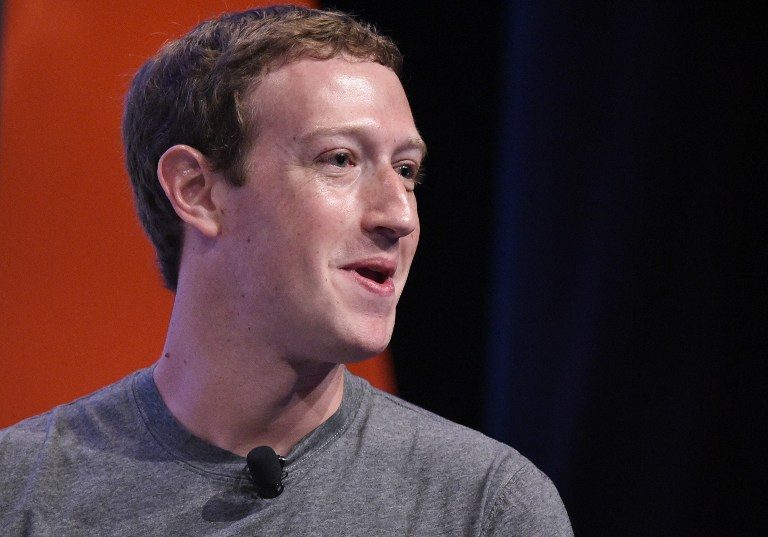SUMMARY
This is AI generated summarization, which may have errors. For context, always refer to the full article.

SAN FRANCISCO, USA – Known for annual personal goals ranging from killing his own food to learning Mandarin, Facebook chief Mark Zuckerberg’s stated mission for this year is to ‘fix’ the social network.
Zuckerberg began taking on New Year’s challenges in 2009, when he wore a neck tie every day as a reminder of the importance of making Facebook profitable despite global financial woes.
Facebook has seen rising profits in 2017, punctuated by a 79% increase in Q3 compared to the same period in 2016. But with the growth comes mounting pressure to battle issues such as fake news, and the handling of violence, abuse and hate on the platform. Its dominance on the digital ad industry along with Google has also been put in the spotlight, with media in the US, UK, and Australia questioning the duopoly and demanding that they pay for news from which they make billions.
US News Media Alliance president David Chavern, writing in a Wall Street Journal commentary, said that the internet platforms “distort the flow of economic value derived from good reporting,” and contended that the two giants don’t employ the reporters that investigate corruption, cover wars, sports and other events.
The two account for more than 70% of the $73 billion spent each year on digital advertising in the US, Chavern said.
With these challenges, Zuckerberg compared the coming year to their beginnings.
“Today feels a lot like that first year,” Zuckerberg said in a post on his Facebook page.
“The world feels anxious and divided, and Facebook has a lot of work to do.”
His list of targets at the social network included abuse and hate; interference by nation states, and, making sure visiting Facebook was time well spent.
“My personal challenge for 2018 is to focus on fixing these important issues,” Zuckerberg said.
“We won’t prevent all mistakes or abuse, but we currently make too many errors enforcing our policies and preventing misuse of our tools.” Uncovered Facebook moderation guidelines in mid-2016 showed the network’s stance on several fronts, some points from which sowed controversy, with people demanding a change in how issues such as suicide, threats and even animal abuse are handled on the platform.
This year, Zuckerberg said he plans to gather experts to delve into topics such as politics, civics, media, and technology in pursuit of his goal.
Facebook has been striving to stymie use of its platform to spread bogus information.
Google, Twitter and Facebook have also come under fire for allowing the spread of bogus news – some of which was directed by Russia – ahead of the 2016 US election and in other countries. (READ: Facebook’s highlights and lowlights of 2017)
Recently, Facebook once again, was in the news for having created teams that trained politicians how to maximize Facebook as a campaign tool, including Philippine president Rodrigo Duterte’s campaign staff.
In the MSNBC interview where Zuckerberg was confronted about this, anchor Ari Melber told the CEO, “Giving tips to a few campaigns in a constitutional democracy can be different in giving tips to this authoritarian Duterte.Facebook learned that quickly. In fact, after his team got that Facebook briefing, his allies went into overdrive, pushing fake news and accounts along with his other wider campaigns.”
(READ: Rappler’s 3-part report on how pro-Duterte groups used social media to spread propaganda with bots and fake accounts)
In Zuckerberg’s “personal goal” Facebook post, there appears to be, at the very least, an acknowledgment that the government may indeed be utilizing technologies to “watch their citizens” or centralize power rather than decentralizing it.
“A lot of us got into technology because we believe it can be a decentralizing force that puts more power in people’s hands,” Zuckerberg said in his post.
“With the rise of a small number of big tech companies – and governments using technology to watch their citizens – many people now believe technology only centralizes power rather than decentralizes it.” (READ: How Facebook has affected ASEAN democracies)
He cited encryption and digital currency as important trends with the potential to put power back in people’s hands, and said he would explore how best to use them at Facebook services.
– Rappler.com
Add a comment
How does this make you feel?
There are no comments yet. Add your comment to start the conversation.